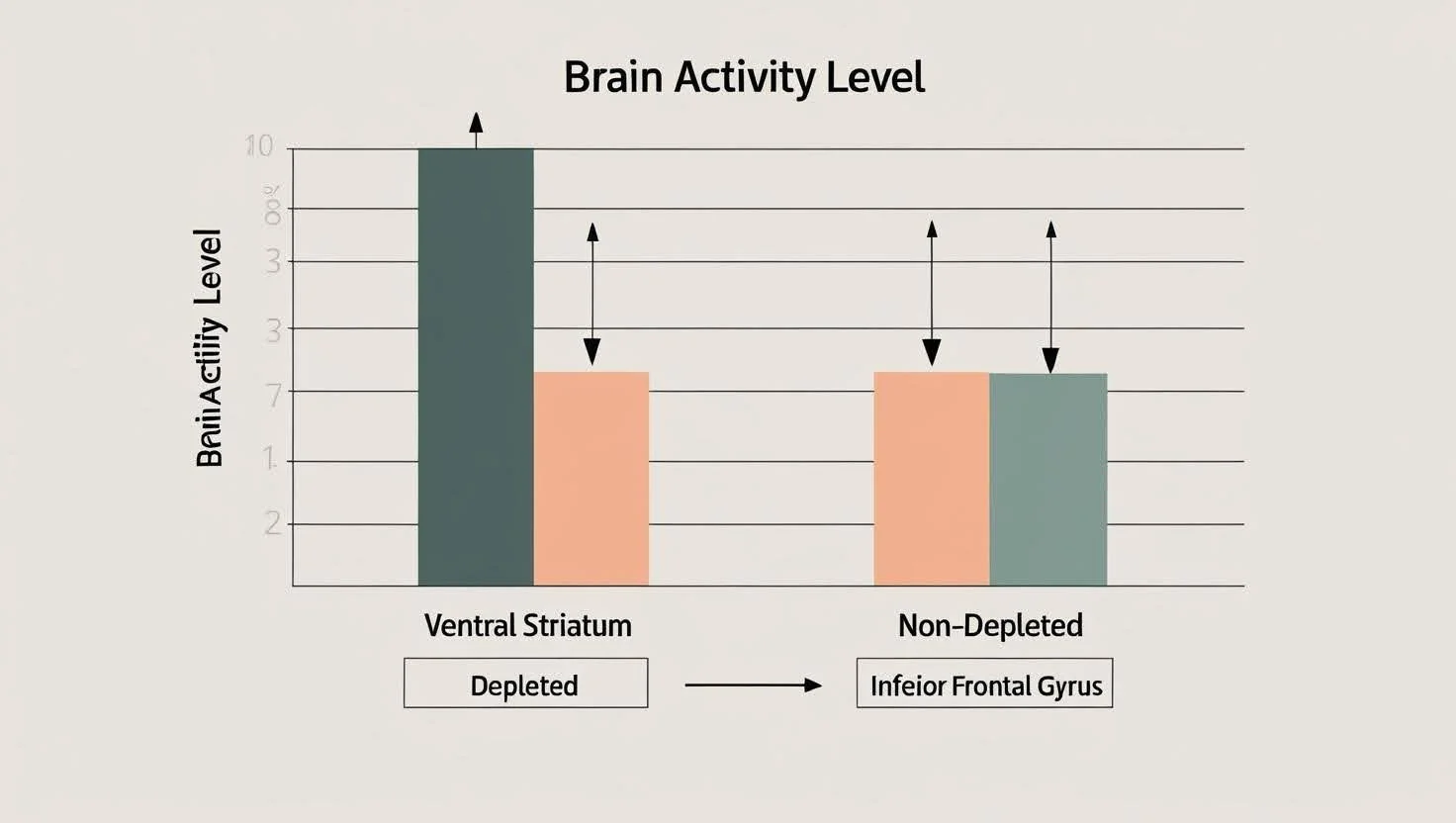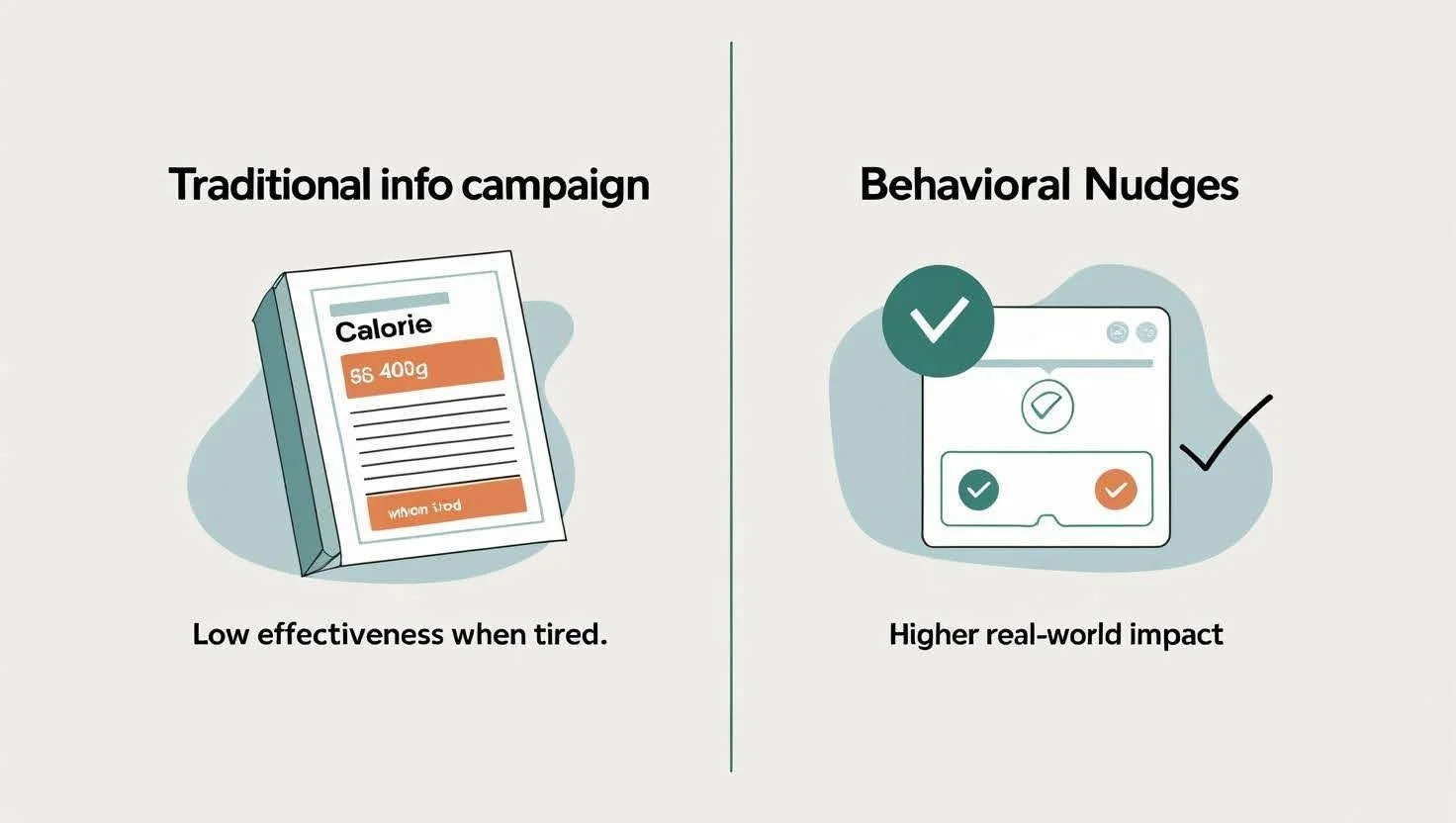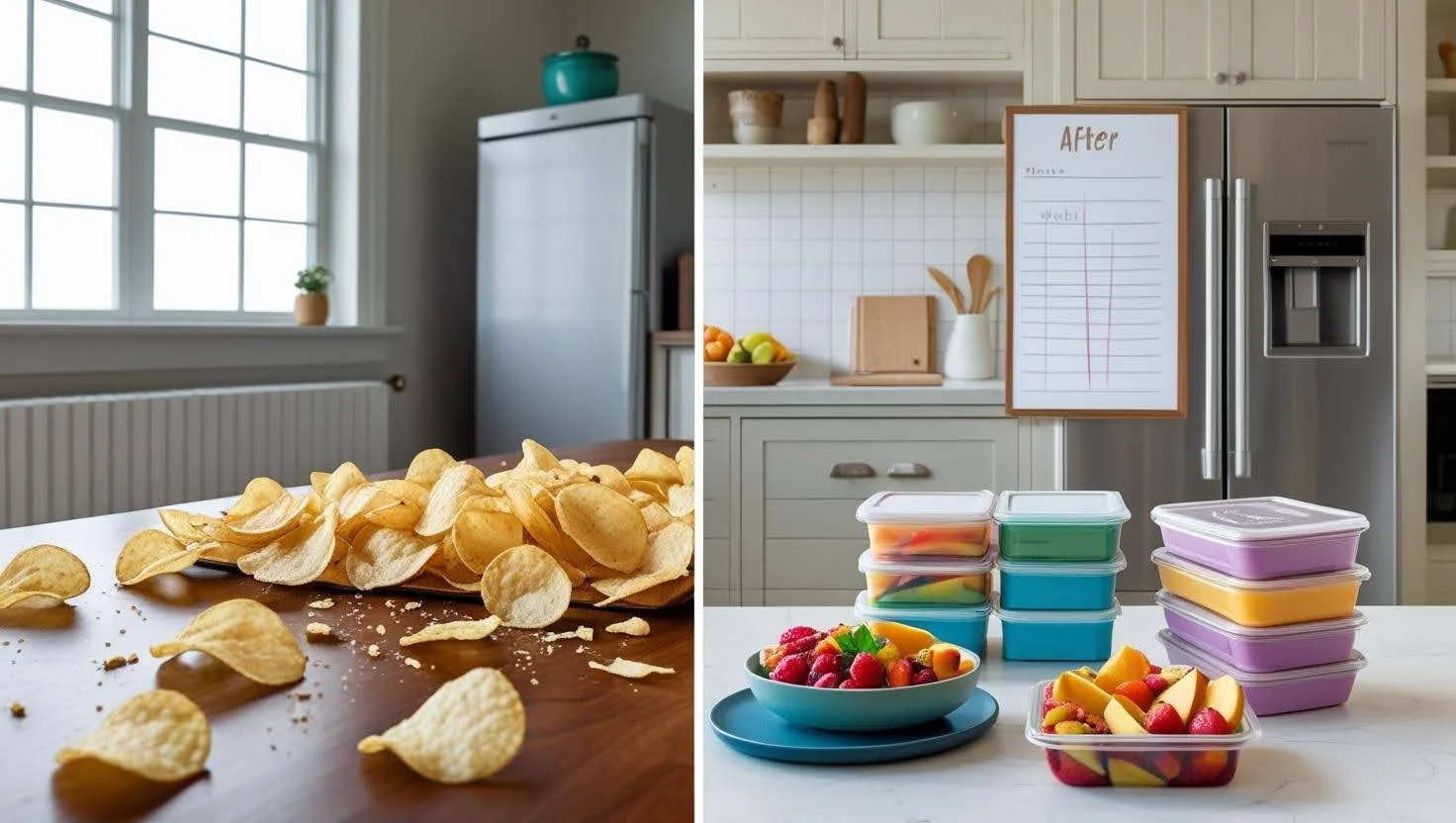How Behavioural Economics Can Help Us Make Healthier Food Choices
Why You Still Struggle with Food Decisions
You know what to eat. You’ve read the articles, tried the plans, maybe even tracked your meals.
So why does the biscuit tin still win at 4 PM?
It turns out, your brain, not your willpower, is often calling the shots.
Behavioural economics offers practical answers. At Nutrimelab, we see how daily food decisions are shaped by mental fatigue, environmental cues, and ingrained habits, often more than willpower alone
In this blog, we’ll explore how the science of behavioural economics can help you understand and gently outsmart your food brain.
The Hidden Cost of Decision Fatigue
Ever felt like your food choices get worse as the day goes on?
You’re not imagining it. Research shows that your brain’s ability to self-regulate is like a muscle, it tires with use.
A 2023 neuroscience study found that when people were mentally depleted, they:
Showed more brain activity in reward centres
Had reduced activity in control centres
This is called "ego depletion." It makes you more impulsive and less capable of sticking to your goals.
Translation: After a long workday, your brain is literally more wired to want junk food, and less equipped to say no.
Wagner, D.D. et al. (2023). Self-Regulatory Depletion Enhances Neural Responses to Rewards and Impairs Top-Down Control. Journal of Cognitive Neuroscience. https://pmc.ncbi.nlm.nih.gov/articles/PMC10124920/
Behavioural Biases That Sabotage Healthy Eating
Behavioural economics reveals that many of our eating decisions are irrational, but predictably so. This happens daily, like choosing a chocolate bar from a 12-option vending machine, even if you meant to grab nuts. Here are a few biases that might be tripping you up:
Present Bias
We tend to favour immediate pleasure (like cake) over long-term goals (like health).Choice Overload
Too many options = decision paralysis. You grab the familiar option, often an unhealthy one.Default Bias
We stick with whatever is easiest or presented as the default, like meal deals with fizzy drinks.Goal Dilution
When health is just one of many goals (stress relief, saving time), it loses its priority.
Why Knowledge Isn’t Enough
Public health campaigns often assume that if people “just knew better,” they’d do better.
But behavioural science tells us otherwise. Even with the best intentions, people often make choices that contradict what they "know" is best, especially when their mental resources are depleted. In one study, participants under cognitive load were significantly more likely to choose high-calorie foods, regardless of visible nutritional information (Roberto et al., 2015). This suggests that just having the facts isn't enough when the brain is overwhelmed.
This is where behavioural economics steps in. Instead of relying on rational awareness alone, it redesigns the environment to make healthier choices easier, even when your brain is tired. For example, placing fruit at eye level in an office kitchen or setting smaller default portion sizes in cafeterias can influence behaviour without requiring willpower.
At Nutrimelab, we often help clients implement similar "nudge" strategies at home: keeping healthy snacks visible, structuring meal routines, or setting pre-decided choices before a busy workday. These changes reduce the mental friction of daily food decisions—working with how the brain naturally functions, not against it.
Roberto, C.A., et al. (2015). Use of Psychology and Behavioural Economics to Promote Healthy Eating. American Journal of Preventive Medicine. https://doi.org/10.1016/j.amepre.2014.08.002
Smart Tweaks That Work with Your Brain
These practical shifts, based on behavioural science, are ones we often share with our clients.
Pre-Commit to Healthier Choices
Plan meals when you’re calm, not hungry
Use delivery apps to schedule healthy food ahead
Pack snacks to avoid vending machine decisions
Change Your Choice Architecture
Keep fruit at eye level
Use smaller plates
Hide the crisps, display the almonds
Use Digital Nudges
Set phone reminders to drink water
Follow wellness accounts that cue healthy thinking
Log food or moods to spot patterns
Reset Your Self-Control Muscle
Sleep and mindfulness strengthen your brain’s regulatory circuits
Practice micro-decisions (e.g. say no to one biscuit) to build confidence
Real Life Example: Meet Priya, 42, HR Executive in Manchester
Priya used to grab chocolate after stressful team meetings. After learning about ego depletion and behavioural nudging, she made three small changes:
Kept a jar of cashews at her desk
Walked around the block after hard meetings
Scheduled her healthiest meal of the day for dinner, when cravings were strongest
Two months later, she wasn’t "perfect," but she was consistent, and kinder to herself in the process.
Frequently Asked Questions
1. What are nudges, and how can they improve my eating habits?
Nudges are subtle environmental cues or changes in context that guide our choices, without taking away freedom. For example, placing fruit at eye level in the fridge or switching to smaller plates can make healthier choices more convenient and appealing
2. Why do nudges work when education alone doesn’t?
Because people don’t always act on information. When stressed, tired, or emotionally drained, our brain relies on automatic “shortcuts.” Nudges tap into these shortcuts, influencing decisions at the moment without requiring extra effort.
3. What behavioural biases most affect our food choices?
Several play a big role:
Present bias: prioritising immediate pleasure (e.g. sweets) over long-term health
Default bias: sticking with whichever option is easiest or set as default
Choice overload: overwhelmed by too many options and defaulting to comfort foods
These predictable patterns can be gently redirected with behavioural economics strategies.
4. How can I use nudges to support my own healthy eating goals?
Start with simple yet powerful nudges:
Make healthy snacks convenient and in view
Use defaults like a weekly meal delivery + planned dinner
Pre-commit by packing lunches in advance
These small adjustments can steer choices without reliance on willpower.
5. Are there limitations or ethical concerns with nudges?
Yes, nudges often work best short term and don’t always lead to sustained change
Final Thought:
You’re not lazy or weak. You’re human. Struggling with food choices isn’t about failure. It’s about how your environment and mental state shape automatic responses
Once you understand how your brain shortcuts decisions and how fatigue makes healthy eating harder, you can start building habits that help you outsmart those patterns.
It’s not about perfection. It’s about planning for your future, wiser self.
Want to dive deeper?
Join our free masterclass: “Brain, Biases & Biscuits: The Psychology of Food Choices”
Or explore our 5-week programme: The Nourish Shift, where behavioural science meets sustainable eating change.
👀 Target Keyword:
Behavioral economics and decision making
👩🏻💼 Ideal Reader:
Busy, health-conscious women (30–50) in the UK navigating food decisions amidst daily stress, information overload, and emotional fatigue.



